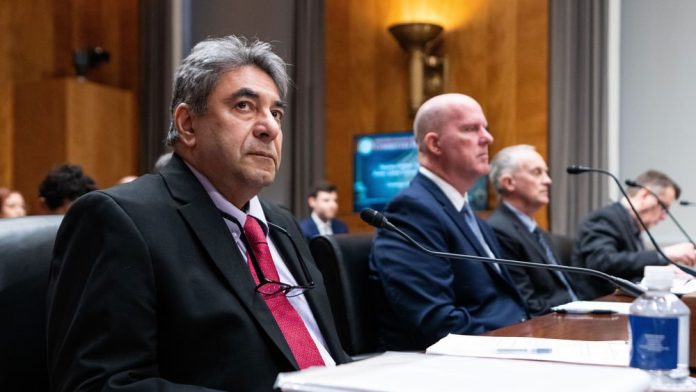A Boeing whistleblower told a US Senate hearing that he faced threats and verbal abuse after raising safety concerns because he said the manufacturer was producing “defective” planes, according to iNews.
Quality engineer Sam Salehpour appeared before the Senate Permanent Subcommittee on Investigations on Wednesday, one of two hearings on Boeing since the mid-air cabin panel explosion in January.
The Alaska Airlines incident triggered a crisis at the company, prompting a management reshuffle, with US regulators imposing restrictions on its production. Salehpour also told the committee he feared “physical violence” after raising concerns, including the discovery of a gap between parts of the 787 Dreamliner’s fuselage.
“They call you on your personal phone to let you know that they know where you live. They know where you are. And they can hurt you. The threats … really scare me, believe me, but I am at peace. If something happens to me, I am at peace because I feel like by coming forward, I will be saving a lot of lives … whatever happens, it happens.”
The hearing came just a month after another Boeing whistleblower, John Barnett, was found dead as he testified in a lawsuit against his former employer. Salehpour, who worked at Boeing for more than a decade, claimed the company had “no safety culture,” arguing that employees who raised the alarm were “ignored, marginalised, threatened, sidelined, and worse.”
He called on Boeing to ground all 787s for inspection, stating that sections of the fuselage could fall apart after thousands of flights, putting lives at risk.
They are putting out defective airplanes.
Salehpour stated he had repeatedly tried to voice his concerns internally over a three-year period.
“I was ignored. I was told not to create delays. I was told, frankly, to shut up.”
Boeing officials said the company’s retaliation was “strictly prohibited”. In a statement on Wednesday, the company defended the safety of twin-aisle jets, arguing that the global 787 fleet had safely carried over 850 million passengers and the 777 had safely transported more than 3.9 billion passengers.
The US Federal Aviation Administration (FAA) stated that every aircraft flying complied with the regulator’s airworthiness guidelines.
US Senate Commerce Committee Chair Maria Cantwell indicated that she expected Boeing to submit a serious plan in response to the FAA’s regulatory deadline. In late February, the FAA stated that Boeing must develop a comprehensive plan to address “systemic quality control issues” within 90 days.
